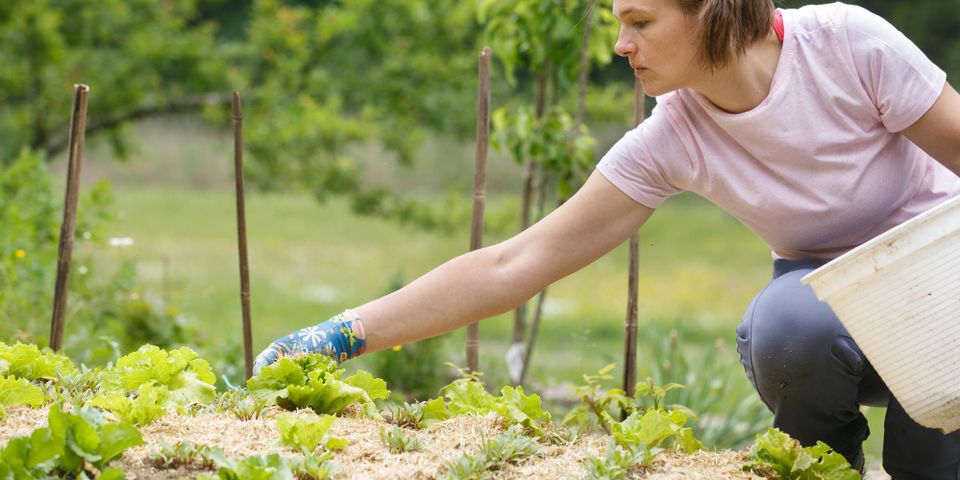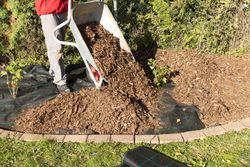
Starting a garden for the first time can involve a lot of trial and error. However, one step you don't want to miss is mulching. Adding a layer of mulch over your garden bed will stave off weeds, retain soil moisture, protect the roots from extreme heat, and prevent soil compaction. Use this guide to find the right mulch for your vegetables or flowers and how to apply it properly.
How to Mulch Your Garden?
After weeding and thoroughly watering your garden bed, apply two to six inches of your chosen mulch over the soil and between the plants. Less mulch is needed for shady areas, but shrubbery growing in direct sunlight will need more to help keep the soil cool and wet. When adding the material, take care to keep it at least one inch from the base of stems. This will prevent them from rotting and deter mice and other pests from making nests in the area.
What Are the Best Types of Garden Mulch?
Bark
 Fresher mulch, like bark, is best applied to areas that do not need soil improvement because it will take longer to decompose. Bark also has a more vivid color than other types, which makes it great for improving the appearance of a flower bed and adding to your home's curb appeal. Its larger, heavier size also makes it preferable in windy areas or to keep pets and other animals from digging in the bed.
Fresher mulch, like bark, is best applied to areas that do not need soil improvement because it will take longer to decompose. Bark also has a more vivid color than other types, which makes it great for improving the appearance of a flower bed and adding to your home's curb appeal. Its larger, heavier size also makes it preferable in windy areas or to keep pets and other animals from digging in the bed.
Pine Straw
If you are growing hydrangeas, rhododendrons, cucumbers, dill, or other plants and vegetables that thrive in acidic soil, pine straw is a preferable mulching option for lowering the pH of alkaline soil. The lighter material also allows more water to reach the soil and roots than heavier options like bark. Plus, it takes longer to break down than other mulching options, which means you won't have to replace it as often.
Stones & Gravel
Although they do not break down, rocks and gravel can be useful mulching options. They are excellent for retaining moisture and preventing erosion, which can come in handy for areas that have intense summers or when planting on a slope. However, consider combining with an organic material to ensure the soil is getting the nutrients it needs to stay healthy.
When you need mulch, fertilizer, and other garden care essentials, visit Northgate Greenhouses in Cincinnati, OH. For 44 years, this three-acre nursery, located in the Colerain Township, has been a favorite source for perennial, annual, and blooming plants and garden materials. Call (513) 729-1134 if you have any questions about their available mulch or other products, and visit their website to view some of the plants currently growing in their greenhouse.
About the Business
Have a question? Ask the experts!
Send your question

